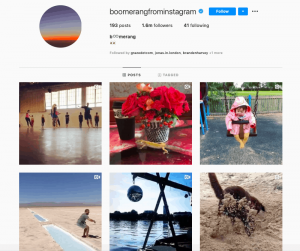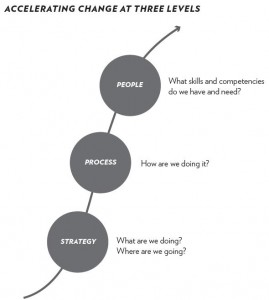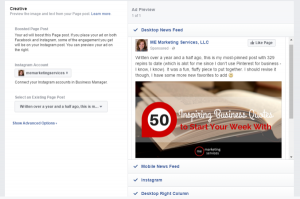Full disclosure: I am old.
I am so old that I recall a time when automobiles required keys. The introduction of New Coke wasn’t something I read in a marketing textbook, I lived it in real time. I’ve watched the emergence of four generations of consumers, from baby boomers to Gen X, millennials, and now Gen Z. I recall listening to marketers talk about Gen X as an afterthought: they were cynics and slackers, their numbers were millions less than boomers and millennials, and they were “the Jan Brady” of generations.
Today, I’m hearing the same thing about Gen Z. They too are cast in the shadow of a behemoth generation and while not quite ignored the way Gen Xers were, they certainly are not getting the kind of love millennials enjoy. Just as it was the case in the 90s, ignoring Gen Z is a mistake.
First, here are some basic facts from an old timer about a generation who can make or break your business today.
Who Is Gen Z?
- Generation Z (once called iGen or Zoomers) were born between 1997 and 2012. (The generation following them, now under 11 years old, is known as Generation Alpha).
- They are mostly in high school or college, or recently graduated, and generally single and just starting their careers.
- They are the world’s first digital natives, people who never experienced a snail-mail, analog world.
- 45% of them say they are online “almost constantly.”
- 65% of brands are now saying they want to market to.
- They are 25.9% of the US population but will hold 40% ($ 44 billion) of its buying power in the coming years.
- 98% own a smartphone.
- 85% learn about new products on social media.
- Half spend about 10 hours on their devices every day.
- 71% watches more than three hours of online video daily.
- They are the most diverse generation in our country’s history.
What Do These Crazy Kids Want?
Raw data can tell you a lot, but to get at the heart of this generation you have to dig a little deeper.
I actually find them quite interesting, as a group, because they tend to defy expectation. What you see on Snapchat and TikTok may not reflect their souls or be what guides their purchases in the market.
Plus, like any generation, they have their detractors who will try to tell you that they are selfish nihilists who dress bizarrely and listen to terrible music. But since this was said of millennials, Gen X, Boomers, and every other generation before them, you can safely ignore that.
The key aspects of to keep in mind for your brand strategy are the following.
Purpose
Gen Z cares in particular about a brand’s values and mission. They want to know you’re not in the game just for a quick profit. In the past, TopRight has done some work in corporate social responsibility (CSR)—we also did a webinar on this topic—and this kind of work should become more central to your brand if you hope to retain this audience. Compared to Gen Z, millennials and were cynical materialists.
Loyalty
Despite the fact that are online all day and more likely to be eager to interact directly with their favorite brands, as an audience they are actually harder to retain than millennials. Research has shown that they aren’t motivated by loyalty programs, or sales and “deals.” They require authentic, fun engagement at regular intervals to remain engaged. Brands in the future will have to carefully plan how to not only capture Gen Z’s attention, but repeatedly re-engage their own audience with compelling content.
Technology
They are a cohort that is confident in their tech skills and that expects their brands to be as cutting edge as possible. Despite this, however (I told you they will defy expectations!), they tend to yearn for genuine human connection above all else. Therefore, using technology creatively in your strategy to somehow bring them in while also creating spaces for authentic community engagement should be at the top of your list.
Aspiration
Gen Z is a highly entrepreneurial, aspirational group who uses social media as a way to promote their personal brands, small businesses, or issues they care about. Despite the wild way they may dress or act in TikTok videos, however, in fact they don’t use social media for status or for connection with others. They do that elsewhere, because (I believe) they know that social media is ephemeral and cannot provide them with the meaning they seek. So, in order to engage with Gen Z in a strong way, brands will have to walk a funny line of both using technology and social media to contact them while also delivering a secondary impact that speaks to them outside of digital channels. At TopRight, we do a lot with word-of-mouth marketing, and I suspect these strategies will be even more impactful and productive with.
Final Note: Video
One major point I want to leave brand strategists with today regards video content. As noted above, most are on their phones 10 hours a day and watch at least 3 hours of video daily. Brands who rely on text-based advertising, email, and even Twitter or Facebook will start to struggle to drum up interest from this cohort. What captures their attention, at least to start with, is high-quality, compelling, engaging, and fun video content. If you’re aspiring to gain an audience, video needs to stand at the center of your strategy.
Business & Finance Articles on Business 2 Community
(23)






